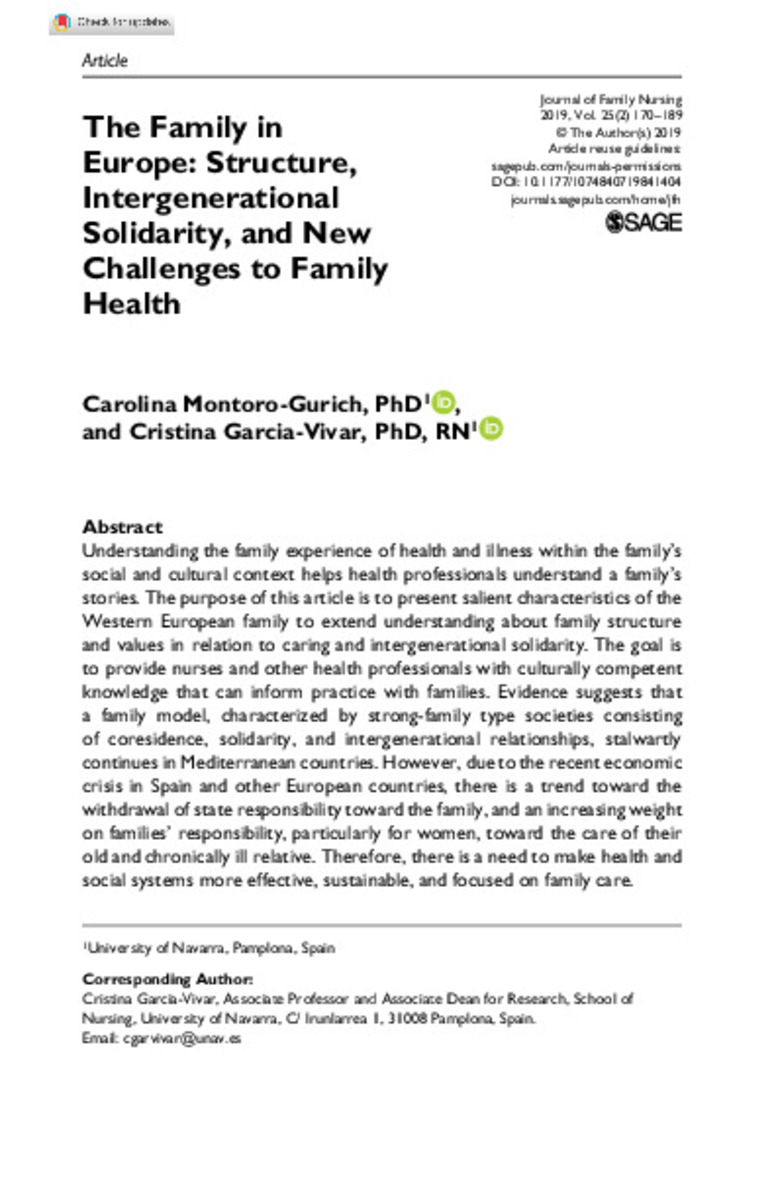The Family in Europe: Structure, Intergenerational Solidarity, and New Challenges to Family Health
Keywords:
Materias Investigacion::Geografía
Family
Intergenerational relations
Family structure
Family health
Europe
Citation:
Montoro-Gurich, C. (Carolina); Garcia-Vivar, C. (Cristina). "The Family in Europe: Structure, Intergenerational Solidarity, and New Challenges to Family Health". Journal of Family Nursing. 25 (2), 2019, 170 - 189
Statistics and impact
0 citas en

0 citas en

Items in Dadun are protected by copyright, with all rights reserved, unless otherwise indicated.











